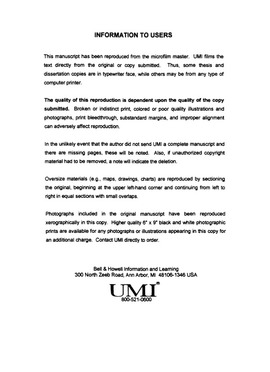| dc.contributor.advisor | Taylor, Kenneth L., | en_US |
| dc.contributor.advisor | Mitman, Gregg A., | en_US |
| dc.contributor.author | Palmeri, Joann. | en_US |
| dc.date.accessioned | 2013-08-16T12:30:47Z | |
| dc.date.available | 2013-08-16T12:30:47Z | |
| dc.date.issued | 2000 | en_US |
| dc.identifier.uri | https://hdl.handle.net/11244/5898 | |
| dc.description.abstract | By 1918 American astronomer Harlow Shapley (1885--1972) had completed the work that established his reputation as a scientist and secured his place as one of the most important contributors to the development of twentieth-century astronomy. This work included techniques to determine stellar distances and the discovery of the eccentric location of the solar system within the Milky Way. While Shapley continued to conduct scientific research for the next five decades, his most important contribution to astronomy during these years lay in his Directorship of the Harvard College Observatory. Preoccupation with Shapley's early work neglects other important facets of his professional life. From lecturing in colleges and churches, to promoting international cooperation, to participating in multidisciplinary postwar planning, to political lobbying, to popularizing science, Shapley devoted substantial time and effort to activities outside the scope of his roles as astronomer and observatory director. Throughout his life Shapley devoted himself to the mission of spreading the word of the significance of the cosmic facts for humanity, and pointing out the philosophical, social, and religious implications of science. In this dissertation I characterize Shapley as a prophet of science to highlight the continuing mission on behalf of science that underlies his wideranging activities in the public arena. In this study I document Shapley's shifting strategies to promote science from the 1920s through the 1960s and his personal and professional motivations for doing so. While Shapley's missionary impulse on behalf of science was rooted in the 1920s, the intellectual and cultural climate of postwar America provided inspiration and opportunity to promote science as "rational religion." His interest in biological subjects led him to emphasize "cosmic evolution" as the foundation for a new "stellar theology." Shapley helped create a new niche for the astronomer within the public arena, and helped to establish the cosmos as a compelling public venue for pondering the fate of humanity and addressing questions of moral and spiritual significance. | en_US |
| dc.format.extent | vi, 282 leaves ; | en_US |
| dc.subject | Shapley, Harlow, 1885-1972. | en_US |
| dc.subject | Science and state United States. | en_US |
| dc.subject | History of Science. | en_US |
| dc.subject | Cosmology. | en_US |
| dc.subject | Biography. | en_US |
| dc.subject | Religion and science United States. | en_US |
| dc.subject | History, United States. | en_US |
| dc.title | An astronomer beyond the observatory: Harlow Shapley as prophet of science. | en_US |
| dc.type | Thesis | en_US |
| dc.thesis.degree | Ph.D. | en_US |
| dc.thesis.degreeDiscipline | Department of History of Science | en_US |
| dc.note | Co-Chairs: Gregg A. Mitman; Kenneth L. Taylor. | en_US |
| dc.note | Source: Dissertation Abstracts International, Volume: 60-11, Section: A, page: 4158. | en_US |
| ou.identifier | (UMI)AAI9952415 | en_US |
| ou.group | College of Arts and Sciences::Department of History of Science | |
